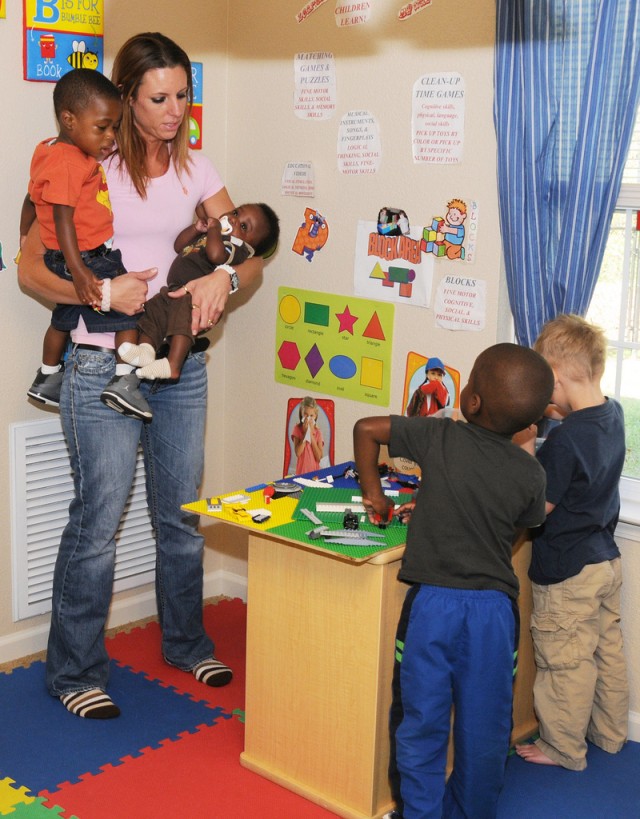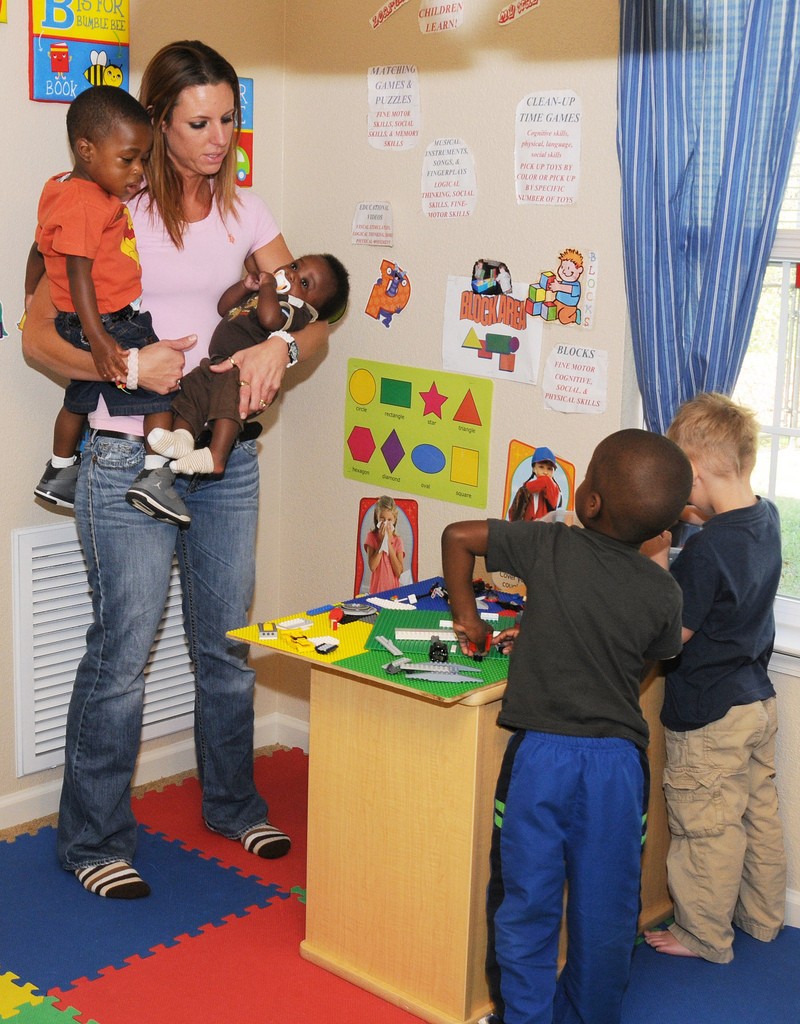
FORT RUCKER, Ala. -- Parents everywhere depend on child care providers while they are away at work. But what happens when work hours don't fit into a day-care center's schedule'
At Fort Rucker, the U.S. Army Family Child Care Program is one option provided to military Family members, Department of Defense civilians and DOD contractors through the Army Child, Youth and School Services.
FCC homes provide flexible hours, a comfortable family-like setting and activities based on real life experiences in the home and neighborhood, said Vender Tabb, local FCC director.
"The FCC Program is provided by military Family members or civilians working as independent contractors in individual housing units located on a military installation, in government-controlled housing off the installation or civilian housing off the installation," Tabb said.
Most homes offer full-day, part-day and hourly care. Special services may include 24-hour and long-term care during mobilization and training exercises, evening and weekend care and care for special-needs and mildly ill children.
"The flexibility of FCC providers is an asset in meeting the diverse work hours of military families," Tabb said.
Because the FCC concept is so popular, the demand for providers is constant.
"We turn clients away every day," Tabb said. "Fort Rucker is authorized to have 30 FCC homes and we currently have only 10. That means we are actively recruiting 20 more FCC providers to meet the demand.
"We have two requirements for our recruits: they must be teachable and be able to follow the rules," she said.
And this is one home-based business that a well-organized person can get into with literally no upfront capital.
"Once trained, a new FCC provider is furnished with everything needed to open for business. From furniture, to books and toys and miscellaneous supplies, the military FCC program sees to it that providers incur no financial hardship," Tabb said.
Veteran FCC provider Christy McWilliams said she thinks many people are reluctant to entertain the idea of starting a child care business because they're afraid it will disrupt their own lifestyle and create chaos in their home.
"Nothing could be further from the truth. I have one room in my home designated as the day-care room and the rest of my home remains separate. All the toys and books are restricted to that room and the children haven't had a problem adhering to that simple rule," McWilliams said. "The FCC program is set up to support its providers in every aspect of the business."
Making things easy on providers is a goal of the FCC, Tabb said.
"CYSS strives to relieve our FCC providers of both financial and emotional stress by offering free child care and opportunities to take additional time off without suffering loss of income," Tabb said.
"We don't want our providers to be stressed out. We are always just a phone call away, and encourage providers to call us if they need to talk, are dealing with a difficult situation or just need time out for the gym or other healthy activity. They are, after all, a tremendous asset to our community, and we don't want them feeling like they're in this alone," she said.
The potential income is nothing to sneeze at either.
"I was surprised to discover that in 2009 I netted more than $30,000, and last year, I netted about $5,000 more than the year before," McWilliams said. "And this business travels wherever the Army sends us."
McWilliams, who has been an FCC provider for more than six years, has moved between Fort Rucker and Fort Stewart, Ga., several times, and each time she has seamlessly started her business at the new location.
FCC providers also offer Families with more than one child the opportunity to keep their children in the same home.
McWilliams cares for six children and has had two siblings for four years -- since they were just weeks old.
"In FCC, siblings can stay together -- younger and older children learn from each other in a small group setting, and school-age children can remain in a neighborhood setting," Tabb said.
Parents can expect to receive the same quality of care in an Army FCC home as in an Army Child Development Center or School-Age Program. FCC providers receive the same training and support as CYS facility based staff. Each group of 25 to 40 providers is designated an FCC Network with its own director and trainer and is managed like a "center without walls," Tabb added.
FCC providers and their homes meet specific requirements related to health, fire prevention, safety, and child development programming and are certified by the installation. They must pass stringent background checks and inspections, and FCC homes are regularly visited and inspected by CYSS staff and installation representatives, she said.
For information about becoming an FCC provider or to find an FCC provider in your area, call (334) 255-3446.

Social Sharing